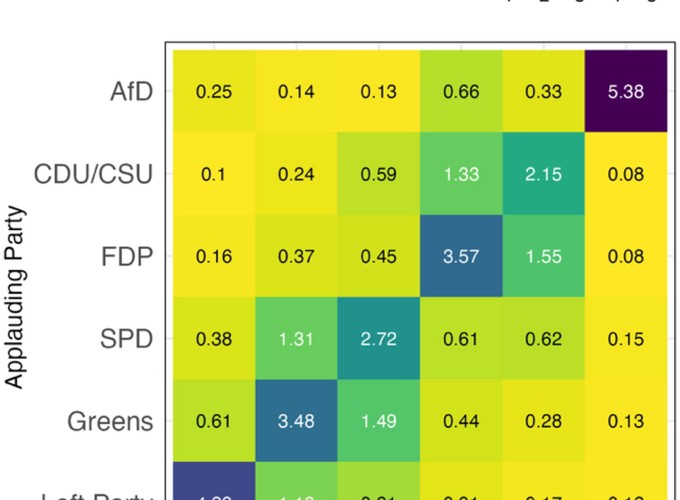I’m a Postdoctoral Researcher at the Institute for Political Science of the Technical University of Darmstadt, holding a Ph.D. in Political Science from the University of Mannheim. I work at the intersection of Data Science and Political Science. Before my PhD studies, I graduated from the University of Mannheim with a Master degree in Data Science. My research focuses on (multimodal) political communication, combining computational with traditional methods to address substantive questions on party competition and political behaviour. My work has been published in European Journal of Political Research, Political Analysis, and Political Science Research and Methods, among others. During my Ph.D., I have conducted research visits at the Mannheim Centre for European Social Research (MZES, University of Mannheim) and the Centre for AI in Government (CAIG, University of Birmingham).
 Figure 3: Heatmap of predicted applause per 1000 words based on a Poisson regression model.
Figure 3: Heatmap of predicted applause per 1000 words based on a Poisson regression model. Figure 3: Heatmap of predicted applause per 1000 words based on a Poisson regression model.
Figure 3: Heatmap of predicted applause per 1000 words based on a Poisson regression model.